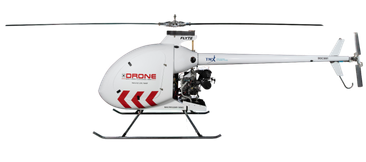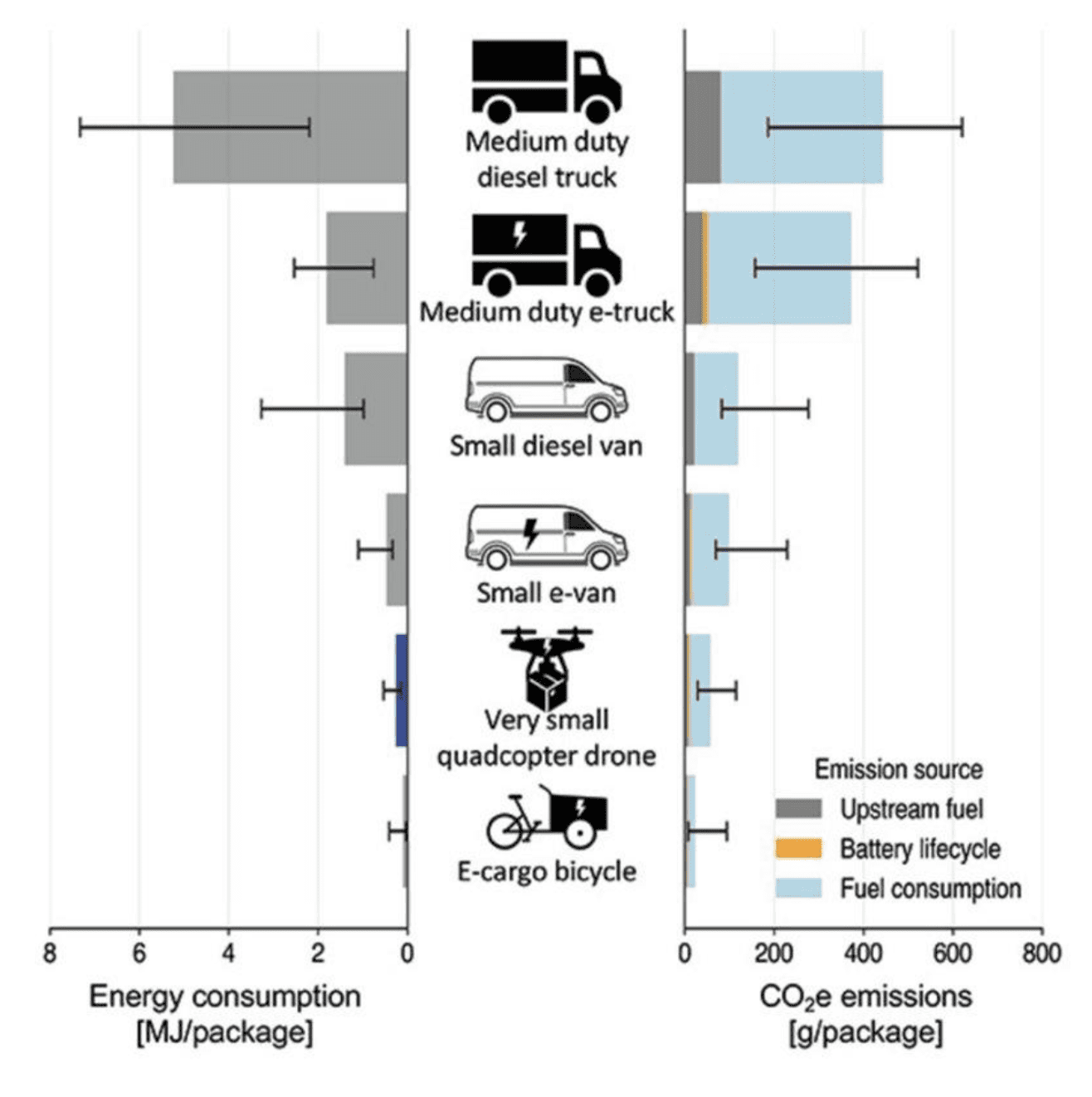Use of Drones in Logistics: Streamlining Delivery
Could the world of logistics be on the brink of another monumental shift? With burgeoning e-commerce needs and a rapidly evolving global landscape, traditional freight forwarding services are being stretched to their limits.
Enter delivery drones: not merely as a solution but as a potential paradigm shift. They don't just promise speed - they pledge efficiency, sustainability, and a reimagined approach to last-mile deliveries. Imagine a world where traffic congestion becomes irrelevant to package deliveries, and even the remotest regions are accessible within hours.
But, like all revolutions, drone logistics comes with its unique challenges and demands. How do we navigate the intricate regulatory mazes? What's the roadmap to securing public trust? In this blog, we'll dive deep into the impact of drone delivery in logistics, unearthing the transformative potentials, challenges, and nations at the forefront of this airborne evolution.
Future of Logistics Drones
The logistics industry is blossoming alongside technological progress. As enthusiasm for drone logistics rises, understanding the nuances and requirements for successful drone integration becomes even more vital.
Before a seamless drone delivery service can become mainstream:
- Regulatory approvals must be secured
- Operational infrastructure must be set in place
- Technological advancements should be consistent
- Public acceptance and trust need cultivation
- Safety protocols have to be strong and foolproof
Peeling back the layers on a global scale, drone delivery is seeing a surge. In 2022, the worldwide market value for drone package deliveries was at $1.46 billion, which surged to $2.10 billion by 2023, reflecting a CAGR of 43.9%. Projections indicate that by 2027, this market could reach an impressive $9.21 billion, maintaining a CAGR of 44.7%.
Innovations are not only reshaping delivery mechanisms but are also redefining customer expectations. In the Canadian landscape, the momentum is equally palpable. Companies like Drone Delivery Canada [DDC] are paving the way, echoing the promise of efficient, sustainable, and technologically advanced delivery solutions.
Strategic collaborations and partnerships are further fuelling this drive. Recognizing the potential, many logistics giants are entering symbiotic alliances with drone tech innovators. This synergy is accelerating R&D, scaling operations, and bridging the gap between concept and reality.
From a market trend perspective, the focus isn't merely on speed and efficiency. Emphasis on environmental sustainability, cost-effectiveness, and addressing the challenges of last-mile delivery in remote areas are defining the roadmap for the future of drone logistics.

of Air Cargo Logistics

Use Cases
Today's logistics industry rapidly gravitates towards drone deliveries, propelled by modern consumers demanding speed, efficiency, and eco-friendliness. These consumers not only desire but expect swift same-day deliveries, even in remote corners of the world. Moreover, air drone logistics are 60% cheaper, and fleets are easier to handle than deliveries by land.
Standing at the forefront, DDC illuminates not just the mechanics but the transformative benefits of drone logistics. We've proven that the future isn't just about faster deliveries but smarter, more sustainable ones.
However, when the Covid-19 pandemic unexpectedly hit, the world shifted gears. As the world went into lockdown, online shopping shifted from a luxury to a lifeline. Experts estimate the first two years of the pandemic contributed to an extra $218 billion in e-commerce revenue. With this surge in e-commerce, the pressure mounted on the logistics sector.
Using drones for delivery, with their nimbleness and efficiency, became the answer. During these turbulent times, DDC’s innovations rose to prominence. They didn't just address the challenges of the moment but sketched a vision of what the future could look like. Many businesses are now using drones for delivery, enabling them to reach remote areas faster.
In essence, the journey into drone delivery logistics is more than a technical exploration. It's a glimpse into a future where deliveries are not just faster but smarter, reshaping shipping in ways we're only beginning to imagine.
Benefits and Challenges
Drone logistics, brimming with potential, is charting a path full of possibilities. While every groundbreaking innovation meets challenges, the evolving international regulatory landscape is a testament to the industry’s dynamic and promising future.
It’s important to note that safety, for both the drones and the public, stands as a non-negotiable priority. And as for the drones themselves, while impressive, they’re still bound by limitations on how much they can carry. The unpredictability of weather further adds layers of complexity, testing the resilience of these flying marvels.
Yet, perhaps the most challenging hurdle lies in the hearts and minds of people. Gaining public trust and ensuring privacy? That's the real game-changer. This sentiment sets the stage for the challenges the industry faces.
Challenges:
- Dense regulations dictate flight rules
- Public and drone safety remains paramount
- Payloads have strict weight limits
- Adverse weather affects operations
- Public trust and privacy loom large
The leap into drone logistics, however, isn't merely about confronting these challenges. It's also about embracing the multitude of benefits. Drones, with their aerial prowess, herald an age where speed, efficiency, and sustainability coalesce, offering a promising future for the logistics sector.
Benefits:
- Drones swiftly bypass land traffic
- Operations achieve efficiency and savings
- Remote areas gain enhanced service
- Electric flights promise eco-friendliness
- Drones cater to varied logistical needs

Source: College of Engineering, Carnegie Mellon University
This chart demonstrates last-mile delivery modes by energy consumption and CO2 emissions, giving a visual comparison of how drones compare with even electric vehicles. E-cargo bicycles are more eco-friendly, but they are also the slowest form of transportation.
The speed with which a drone can fly above traffic congestion presents an unparalleled advantage, resulting in impressive time and cost efficiencies. Moreover, their unique ability to reach hard-to-access terrains ensures that even the most remote locations aren't left behind in the delivery loop. And, with the environmental discourse becoming more central, the promise of eco-friendly electric flights is an additional benefit, reinforcing their role in the sustainable logistics of tomorrow.
Drone Adoption
Drone deliveries are swiftly revolutionizing the logistics landscape across various nations. The adoption of this technology offers a promise of a fast and efficient future for logistics. Some countries are pioneering this movement, positioning themselves as leaders in drone delivery innovations.
As companies embrace drone logistics, it's imperative to navigate regulatory hurdles, partner with reliable drone manufacturers like DDC, and address public safety and trust. In 2022 alone, there were over 2,000 drone deliveries daily, highlighting the exponential growth in this sector.
Large corporations like Amazon have taken early steps, but now, even mid-sized companies are entering the scene. Nevertheless, for genuine transformation, infrastructural support, streamlined regulations, and public acceptance play pivotal roles.
In 2023, the drone logistics landscape is expected to thrive, and these nations are spearheading the movement:

- USA: Over 12% expected growth in the drone market in the next 5 years.
- Canada: Rapidly adopting drone technologies for enhanced delivery.
- Switzerland: Notably using drones for pharmaceutical deliveries.
- India: Aiming to become a drone hub by 2030 with governmental support.
- China & Japan: Leading the drone delivery sector in Asia.
- Iceland & Finland: Using drones to reach remote areas.
- Ghana & Rwanda: Deploying drones for medical supplies and test samples.
Conclusion
The integration of drone technology into the logistics sector signifies a transformative step towards swift, efficient, and eco-conscious deliveries. Despite facing hurdles such as regulatory complexities and public acceptance, the promise of this innovation remains unwavering.
Drone Delivery Canada presents a comprehensive approach to drone logistics. Proprietary software management tools work hand-in-hand with the drones to streamline the delivery process. Research and development efforts have paved the way for improved drone regulations and enhanced flight path optimizations. All of these efforts prioritize safety and efficiency. In this context, the dedication to constant innovation speaks volumes about the transformative potential of drone technology in the logistics realm.
With nations like the USA, Canada, China, and others spearheading this movement, we can expect a future where the drone logistics market will flourish, reshaping our delivery experiences while fulfilling the demands of an increasingly interconnected world.
Ready to embrace the future of logistics with drone delivery? Connect with us today to learn more about our innovative solutions.

